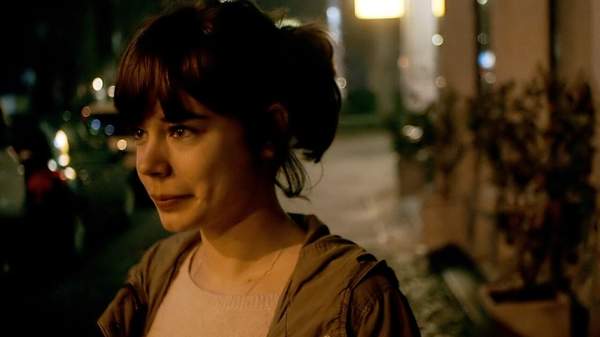Overview
One-shot movies fall into two categories. Some hide their edits to make it appear as though they've been filmed in one continuous take, such as Alfred Hitchcock's Rope and the Oscar-winning Birdman. Others achieve the feat without resorting to cinematic trickery, including historical drama Russian Ark and Iranian thriller Fish & Cat. Either way, the intended effect is the same. By presenting an unbroken image free from cuts and interruptions, filmmakers try to plunge the audience so deeply into the on-screen action that they simply can't bear to tear their eyes away.
Wandering from a Berlin nightclub to a cafe to a life or death bank heist, the adrenaline-fuelled Victoria joins the fold, unfolding in a single, unstaged take. Like all films that employ this technique, there's no denying the underlying technical wizardry on display in this heart-pounding German thriller. But writer/director Sebastian Schipper does more than simply jump on the latest movie-making bandwagon.
Indeed, in his skilled hands, Victoria rarely feels like a gimmick. As the titular Spanish traveller (Laia Costa) catches the eye of the flirtatious Sonne (Frederick Lau) during a night out, and then tags along with him and his mates as they make the leap to the wrong side of the law, the uncut footage endeavours to take the audience along for the ride. Describing cinematographer Sturla Brandth Grøvlen's camera as one of the film's characters might be a cliché, but it's fitting. Victoria doesn't just want to make viewers watch its protagonist's wild night. It wants them to feel like they're in the thick of the frenzy, experiencing every single moment along with her.
Here, variety and movement is key. While the screenplay crafts its own convincing dramas of the criminal and romantic kinds, it's not just the real-time story and changing locations that offer up a few unexpected elements. Equally unpredictable is the way Schipper uses the frame. Sometimes the visuals are claustrophobically precise and tight, while other times they're coasting and loose. The images lurch and circle, simultaneously going with the narrative's flow and creating their own momentum, and mimicking the feature's freewheeling mood while imparting their own urgency and personality as well.
Of course, with the film clocking in at 138 minutes, Victoria's style does eventually threaten to overstay its welcome. Thankfully, Costa's naturalistic performance offers the pick-me-up fatigued audiences might need, even when she appears to be tired herself. The cast's improvised efforts add another layer of realism to a movie that could've just been the latest one-shot stunt. Instead, it's one of the most absorbing, surprising films we've seen in quite a while.
